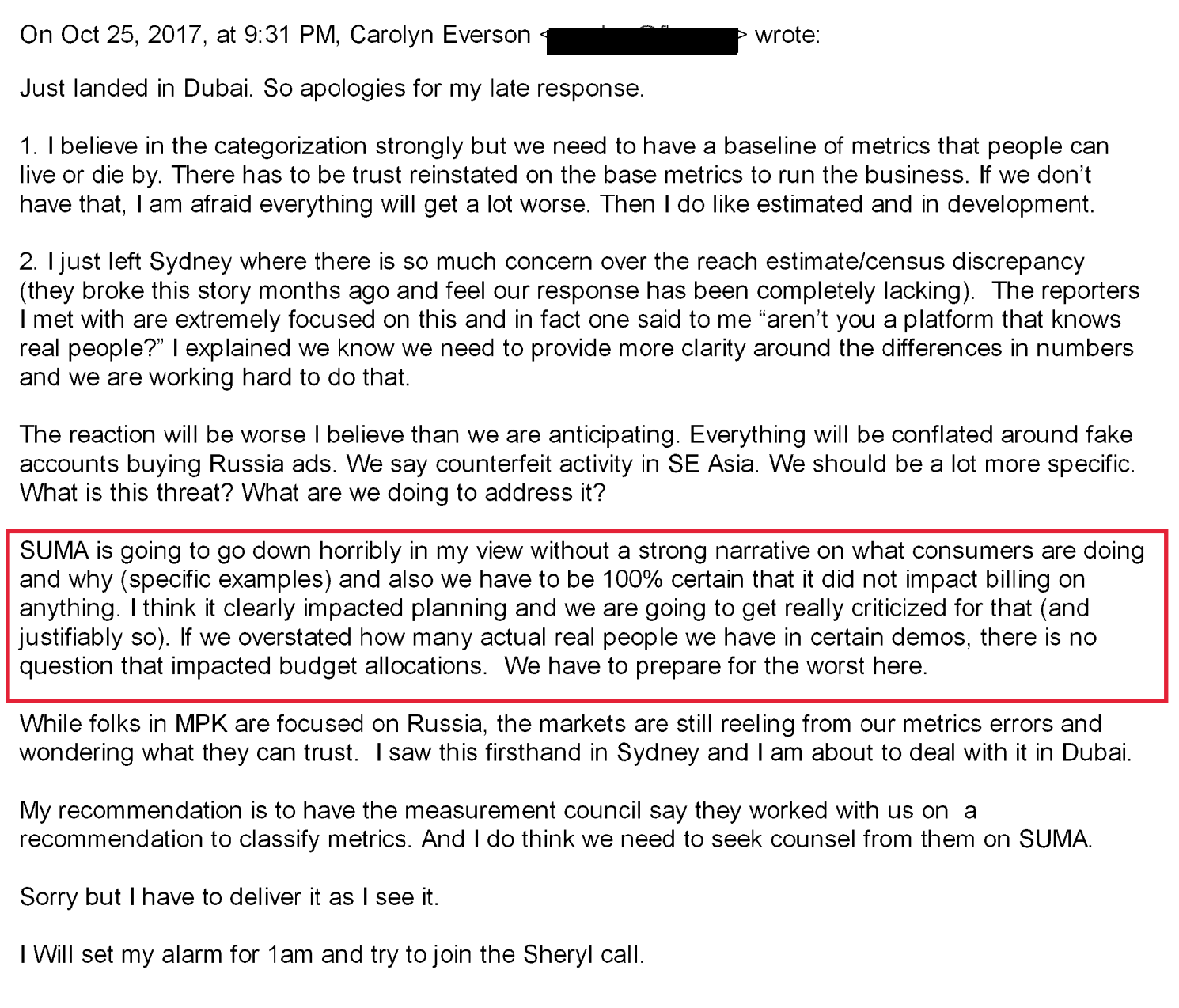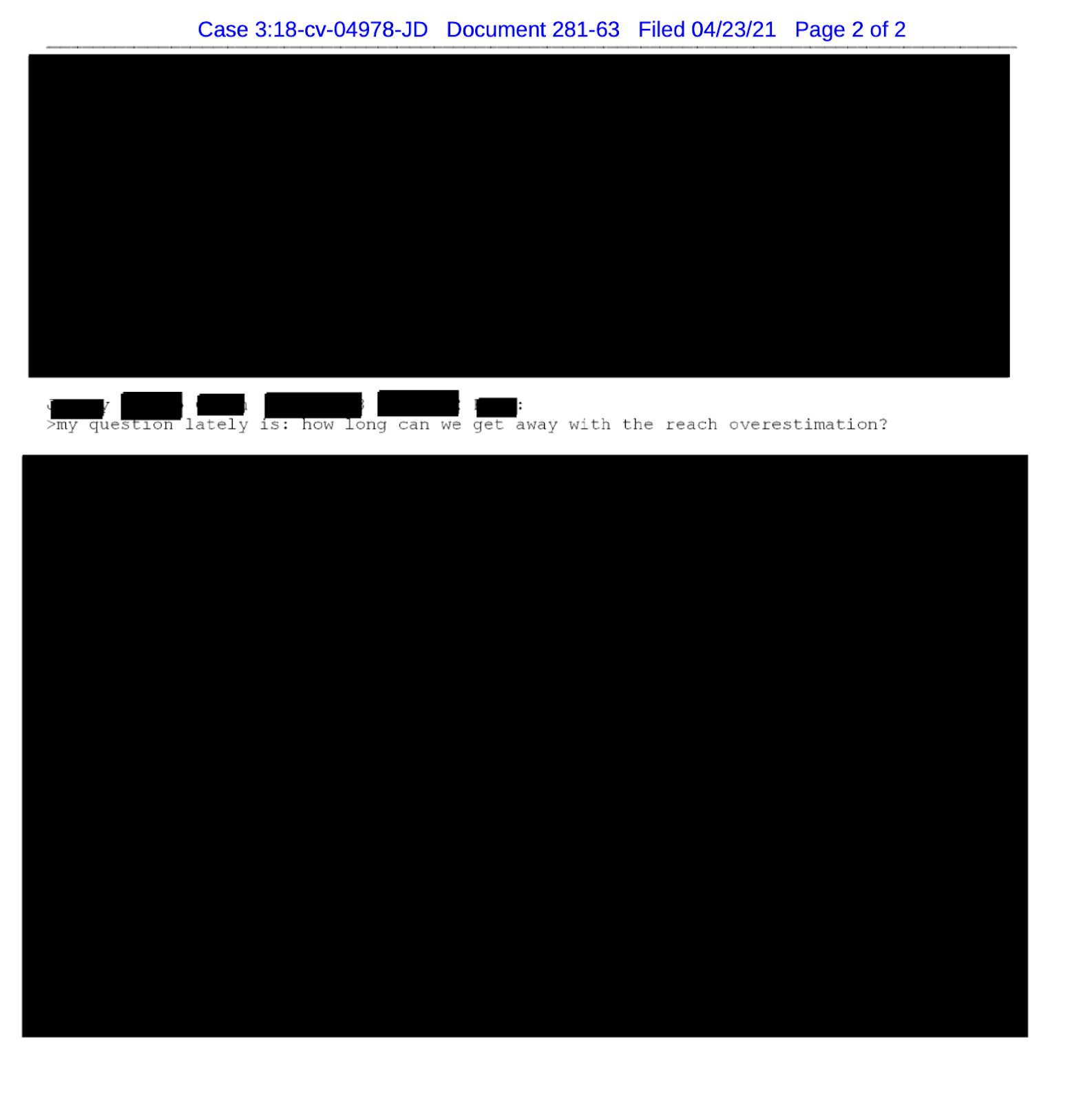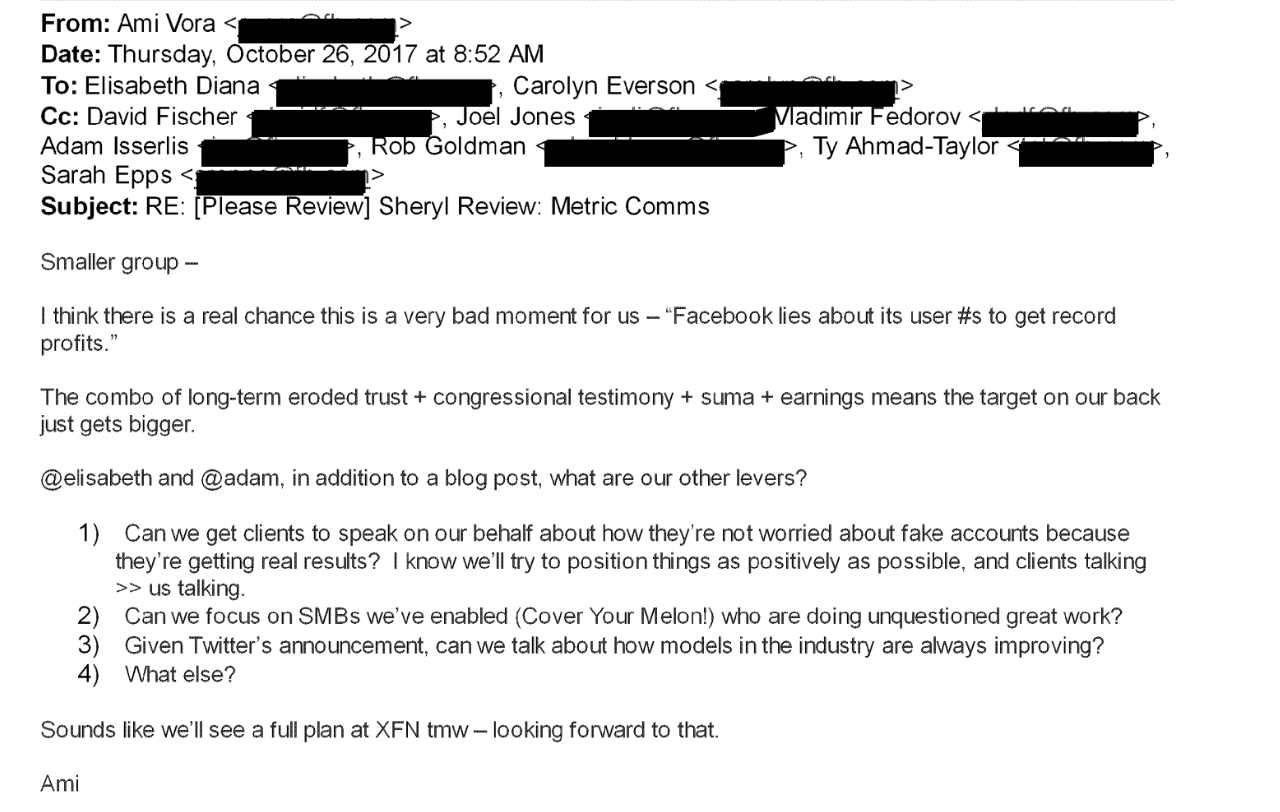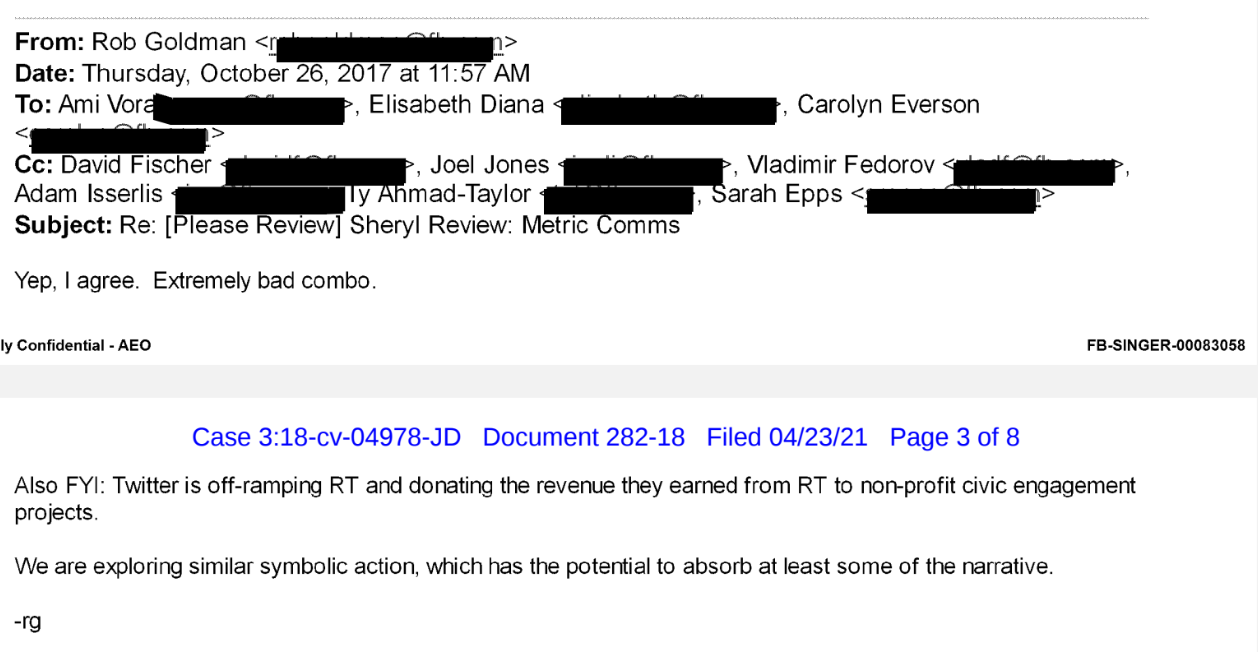Unredacted Facebook emails expose internal deliberations on how to handle scandals about whether it overstated its audience, Russian interference
Justin Hendrix / Apr 27, 2021Unredacted internal Facebook emails revealed as part of a class action lawsuit show the company deliberating about how to handle public relations with regard to claims it overstated the potential reach of its advertising products and its handling of false accounts.
First reported by the Financial Times, the email documents from October 2017 appear to show that Carolyn Everson, a senior advertising executive at Facebook, worried the company should “prepare for the worst” over its apparent overstatement of audience reach claims. Digital Content Next, a trade association of publishing companies, filed to have the documents related to the lawsuit unsealed.

The documents show Facebook executives coordinating closely with Facebook Chief Operating Officer Sheryl Sandberg on questions about how to communicate these issues. And while mostly heavily redacted on the grounds they are commercially sensitive, certain unredacted elements raise questions about the nature of the deliberations. In one email from October 2018, a Facebook executive wrote, “This is a lawsuit waiting to happen.”

One 2017 email from Facebook executive Ami Vora expressed concern that the combination of “long-term eroded trust”, Congressional inquiries related to election interference and the scandal over false accounts could be “a bad moment for us.” She expected headlines such as “Facebook lies about its user #s to get record profits.”

Another email from now former Facebook executive Rob Goldman appears to show him suggesting that Facebook should explore making a “symbolic” gesture with regard to Russian interference in the 2016 election on its platform by mimicking Twitter’s decision to donate revenue from Russia Today. Twitter announced in 2017 it would donate the $1.9 million it earned from Russia Today over several years to “external research into the use of Twitter in civic engagement and elections.”

There is no evidence that Facebook ever donated revenues related to the Russian state propaganda sites, though it has continued to remove pages and accounts related to Russia.
The Financial Times published a statement from Facebook: “It’s clear these old emails are being cherry-picked to fit the plaintiffs’ narrative. They reflect a team being asked to work through a developing issue and then provide recommendations to leadership - nothing more. As we’ve always said, ‘potential reach’ is a helpful planning tool that advertisers are not billed on. We explain what it is and the factors that may influence its calculation in our ads interfaces.”
Authors
